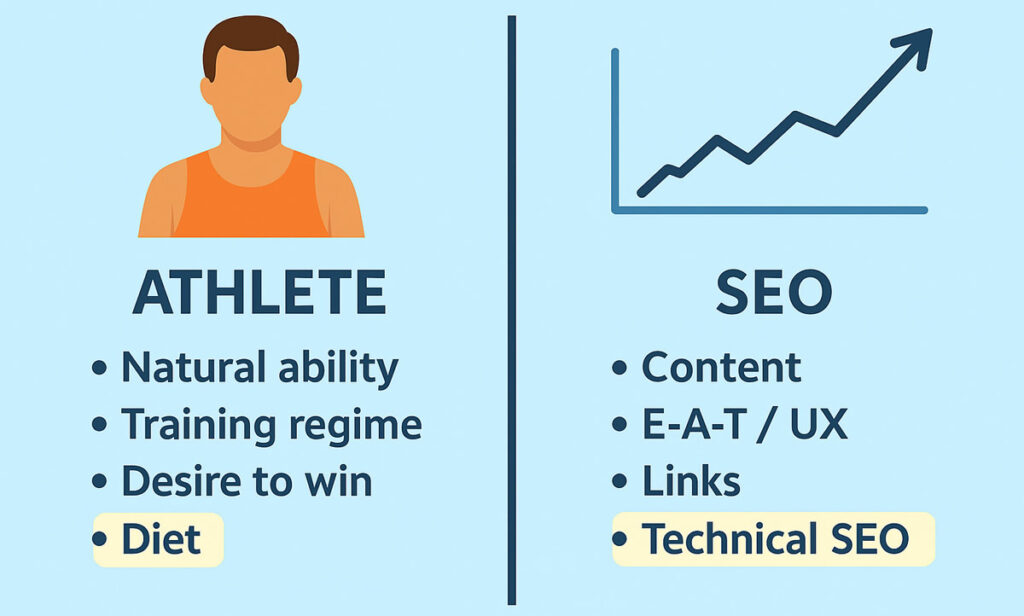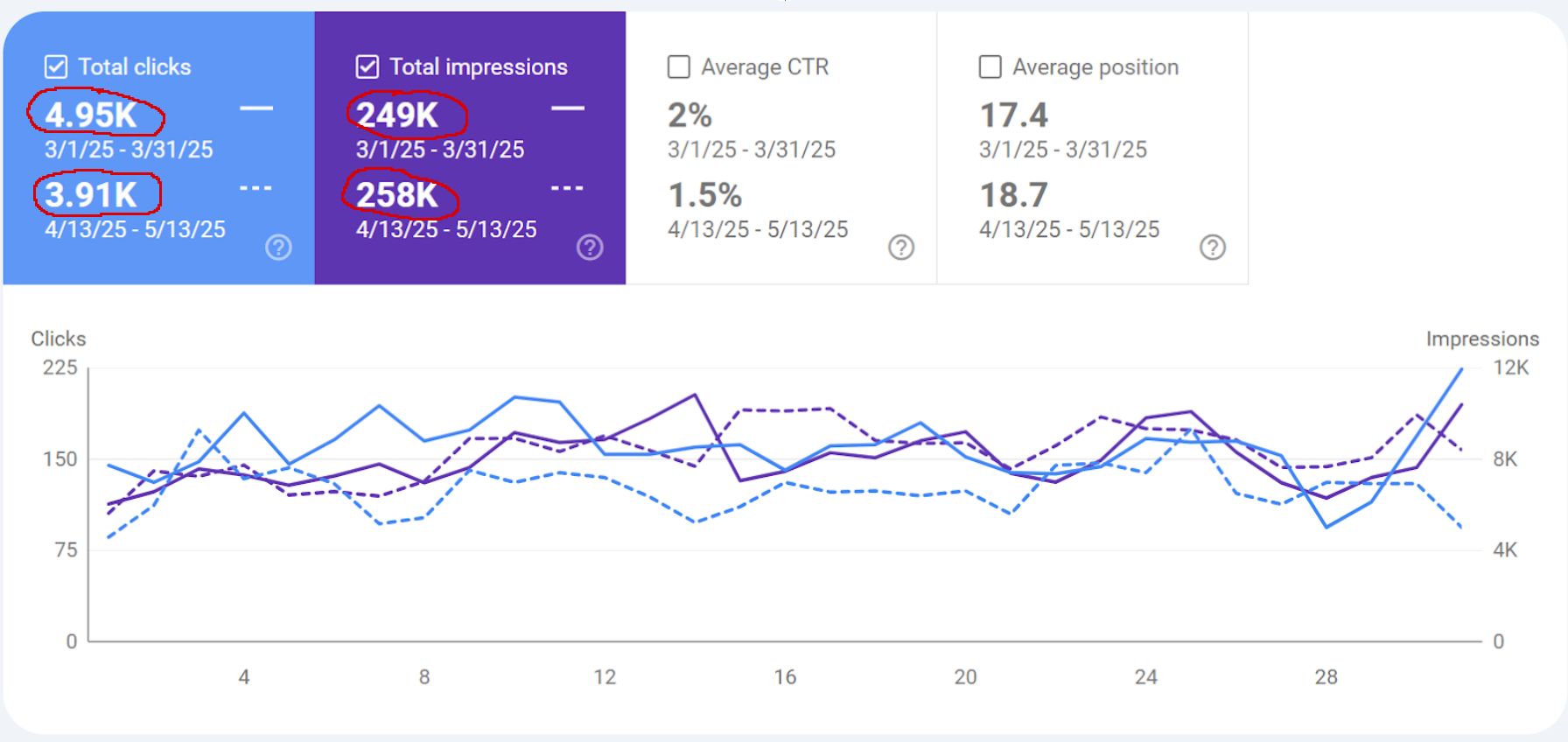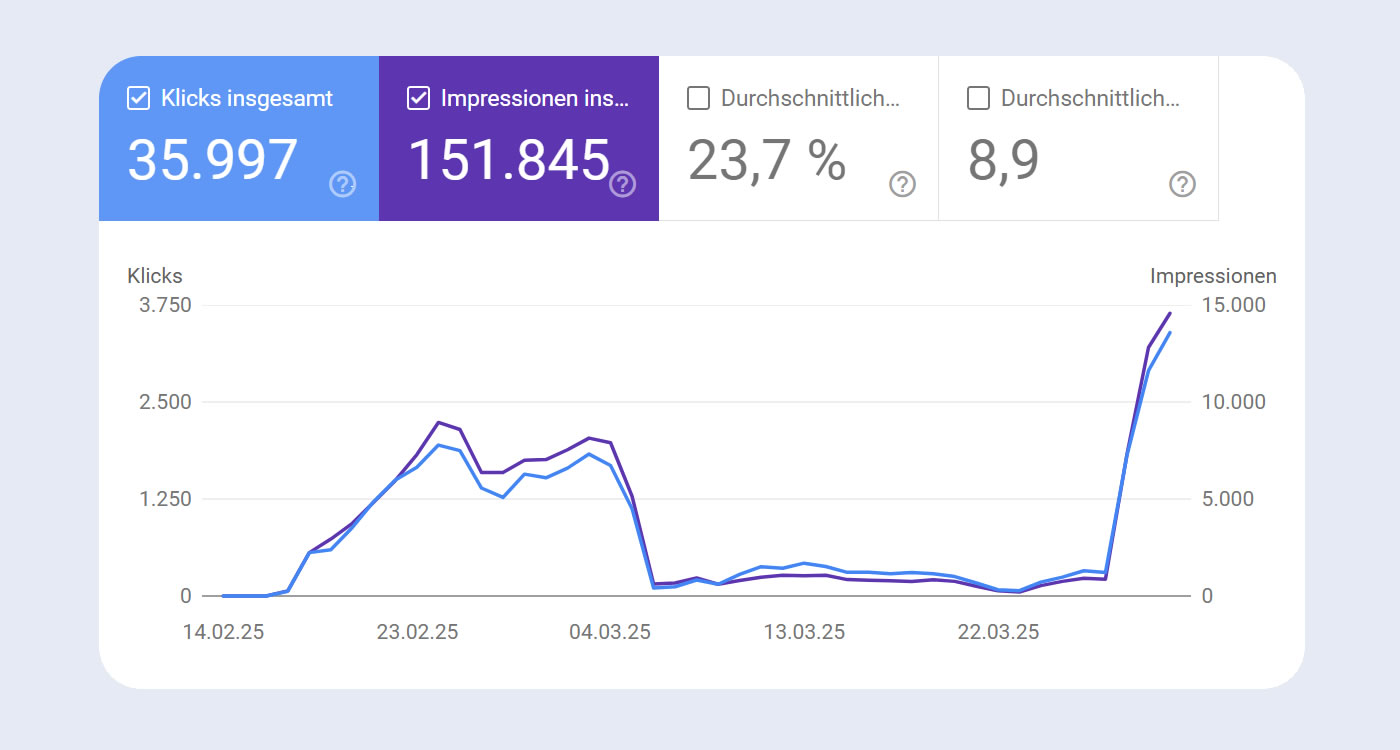
Wir wünschten, das obige Bild wäre wahr. Ist es aber nicht.
Ich sehe mehr technische SEO-Jobs ausgeschrieben als fast alle anderen. Warum ist das so? Viele Website-Besitzer hoffen, dass alles, was sie tun müssen, um Top-Rankings zu erhalten, darin besteht, bei Google ein paar Punkte zu sammeln. Das wäre schön, aber es ist einfach nicht wahr.
Denken Sie einen Moment lang wie Google.
Wenn eine Website nicht übermäßig ansprechend aussieht, nicht gut zu bedienen ist und Inhalte hat, die nicht zu den besten in ihrer Nische gehören, warum sollte Google sie dann schätzen und hoch einstufen, nur weil die technische SEO perfekt ist?
Nun, das würde es nicht, und das tut es auch nicht.

Dennoch ist die technische SEO immer noch wichtig. Wenn die UX, der Inhalt und die Links Ihrer Website gut sind, aber Ihre technische SEO schlecht ist (z.B. Ihre Seiten sind langsam, schlecht betitelt, haben ein schlechtes Schema und Ihre Robots und Canonical Tags sind schlecht gemacht), wird Google Ihre Rankings abstrafen.
Technische SEO ist für Websites das, was die Ernährung für Sportler ist
- Wenn Sie die gleiche Ernährung wie ein Spitzensportler zu sich nehmen, werden Sie nicht zum Spitzensportler.
- Aber wenn eine Person, die aufgrund ihrer natürlichen Begabung, ihres Trainingsregimes und ihrer Arbeitsmoral zu einem Spitzensportler werden kann, sich auch an die perfekte Ernährung hält und die richtigen Nahrungsergänzungsmittel einnimmt.... Nun, diese Ernährung wird über Erfolg oder Misserfolg entscheiden.
Glauben Sie nur nicht, dass die Diät allein ausreicht.
Das ist es nicht.
Unsere technische SEO-Checkliste
Crawlbarkeit und Indexierbarkeit
Geschwindigkeit und Leistung der Website
Mobilfreundlichkeit
Interne Verlinkung & Weiterleitungen
Strukturierte Daten & Indizierung
Einige aktuelle technische SEO-Probleme, die wir überwunden haben
1. Ein kaputter Pre-Renderer
Vorgerenderte Websites werden Google oft aus mehreren Gründen präsentiert. Sie sind schneller und daher für Google einfacher zu crawlen. Sie können den Inhalt des Desktops in das Design des Mobiltelefons integrieren, um sicherzustellen, dass alle Inhalte gefunden und gewertet werden. Das ist gut so, aber manchmal scheitern sie auch.
Hier bestand das Problem darin, dass die vorgerenderte Version nicht funktionierte, so dass Google nur die Hälfte des Inhalts sah. Sogar die Weißen Seiten, manchmal zwei sehr große Kunden, hatten dieses Problem in den letzten 12 Monaten und waren sich dessen nicht bewusst, bis wir ihnen zeigten, was los war.
2. Die Google-Version sagte "Geh weg!"
Die Seite, die Google angezeigt wurde, enthielt einen Code, der Google sagte: "Geh weg", obwohl eine kurze Überprüfung des Codes bei der Anzeige der Website dies nicht zeigte. Selbst beim Crawlen der Website mit einem Tool wie Screaming Frog war das Problem nicht sichtbar.
3. Mobile Version ohne nützliche Daten
Das Produktteam hatte eine modifizierte mobile Version erstellt. Sie war einfacher und besser für mobile Nutzer, die sonst ständig scrollen müssten. Die geänderte Version bedeutete jedoch, dass Google nicht alle Inhalte sehen oder bewerten konnte, die Desktop-Nutzer sehen konnten. Das ist nicht gut. Wir haben den organischen Traffic für diese große Elektronik-Website innerhalb von 2 Monaten verdoppelt, nachdem wir das Problem behoben hatten.
Resümee
Technische SEO ist wichtig für den Erfolg Ihrer Website, aber sie allein wird ihn nicht erreichen. Wenn Sie wissen, was Sie tun (das tun wir), sollte die technische SEO nicht lange dauern, und der Fokus sollte sich dann auf Inhalt, UX und Links richten. Wir können Ihre technische SEO zügig angehen und uns dann der eigentlichen Arbeit zuwenden.
- Reading Time: 3 minutes
Reading Time: 5 minutes
Reading Time: 10 minutes
- Reading Time: 3 minutes
Reading Time: 5 minutes




